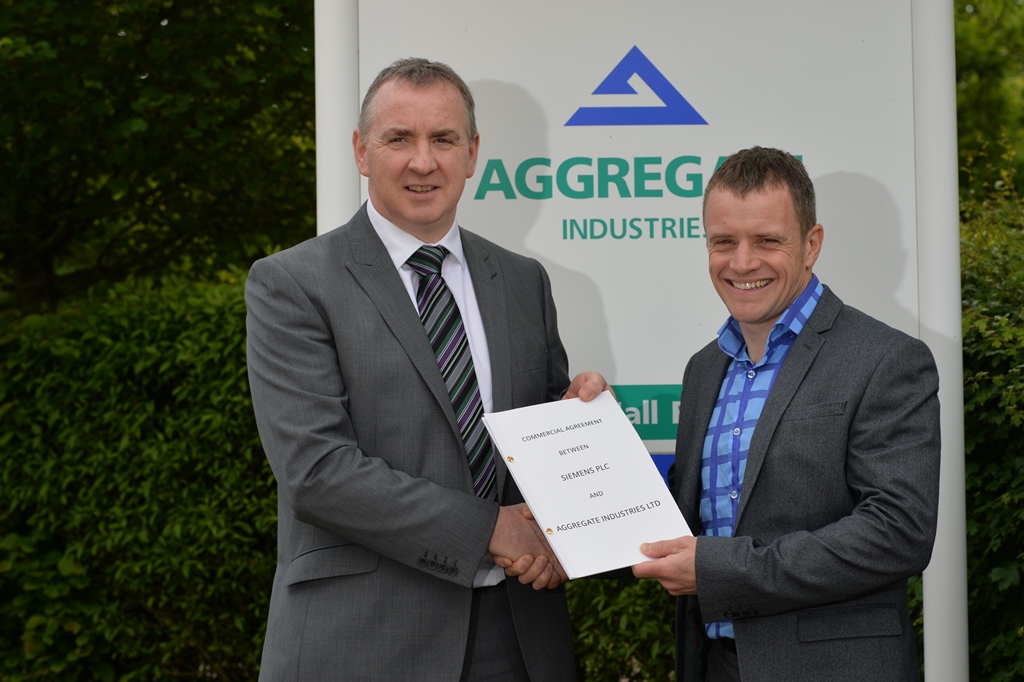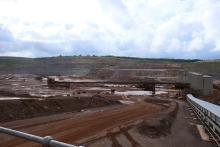
The deal will see Aggregate Industries join with Siemens to provide industrial equipment and support, with the objective of helping the business improve productivity, energy consumption and reduce environmental impact.
The deal, which lasts until September 2015, will also see Siemens undertake a comprehensive energy and drive train review for 250 of Aggregate Industries’ sites, alongside the installation of technologies that will help reduce its energy consumption.
Aggregate Industries (part of the Holcim Group) is a leading supplier of construction and infrastructure materials in an industry which is undergoing a period of rapid growth, following years of contraction due to the financial crisis.
Last month the UK economy grew 0.8%, taking GDP to its 2008 pre-recession peak while activity in the UK's construction sector expanded for a 14th straight month in June.
Data company Markit, and the Chartered Institute of Purchasing & Supply's monthly index rose to 62.6 in June from May's 60.
Non-seasonally adjusted sales volumes for asphalt, crushed rock and sand and gravel grew by 15% in Q1 compared to Q1 last year, all of which appear to be driving renewed growth in the aggregates sector and improving investment sentiment.
As well as the review of UK sites and investment in a portfolio of technologies, Siemens will invest £10,000 (€12,500) to support Aggregate Industries’ apprenticeship programme in a joint venture with Stephenson’s College in County Leicestershire, central England. The investment means apprentices will be trained on equipment in the college that is the same as equipment installed on Aggregate Industries’ sites.
The new partnership will focus on three core areas: drive train technologies (industrial motors for quarries, asphalt and building materials sites); automation solutions (control room systems), and process instrumentation (for measuring weight, level and flow).
The commercial partnership with Aggregate Industries will also offer the company scaled rebates on all purchases made with Siemens, which will provide a complete turnkey solution, with design, installation, commissioning and validation all overseen by professional project management to maximise the success of the UK-wide programme.
Siemens Industry’s aggregate and minerals specialist Robert Thrower, said: “This deal provides economies of scale that will deliver significant cost savings to Aggregate Industries.
“Siemens’ reliability increases overall equipment effectiveness and ensuring consistency of supply means less downtime and more productivity.
“Ultimately there is growing confidence in the economy: the recovery is feeding through the supply chain. We are seeing a boom in construction, led by a housing recovery which is feeding into the aggregate sector and in turn the manufacturing sector. This deal reflects the good news in the wider economy.”
Aggregate Industries has maintained a long-standing commitment to reduce its energy consumption, and this includes reducing the risk and exposure to unsustainable fossil fuels and reducing embodied CO2 impact of its products. The company is going through an ambitious renewable energy programme to reduce carbon output.
A number of other Siemens businesses are now engaging with Aggregate Industries, including the wind turbine and traffic management teams.
Siemens is already the principal partner on a number of sites including the Glensanda Quarry in Scotland, where Aggregate Industries operates three self-unloading vessels, two with a carrying capacity of 97,000tonnes and one with 37,000tonnes.
Gerard Cantwell from Aggregate Industries said: “Our technology partnership with Siemens will put us at the cutting-edge of the UK minerals market, allowing us to improve our cost base and boost productivity, so we can serve a rapidly recovering economy.
“We are also investing in the future of young people through our apprenticeship scheme because as a business we’re committed to developing our employees and giving back to those communities we work in: this is a great opportunity to do both at the same time.
“By investing in energy reduction we are killing two birds with one stone: reducing costs and building on our commitment to reduce carbon consumption in a traditionally heavy consumption industry.”





